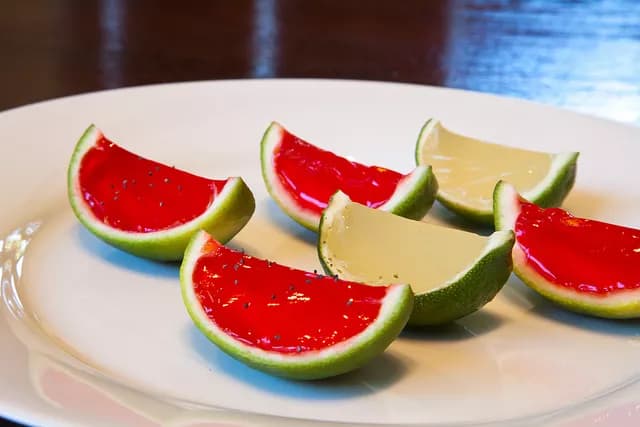
One-Fifth Of Young Drinkers Report Consuming 'Jello Shots,' Study Finds
About one in five underage youths reported consuming alcoholic jello shots in the past 30 days, and those youths were more likely to binge drink, consume more alcohol, and to have been involved in physical fights related to their drinking than their peers who did not consume jello shots, a study led by a Boston University School of Public Health researcher shows.
In the study, published in the Journal of Child and Adolescent Substance Abuse, Dr. Michael Siegel, professor of community health sciences, and colleagues from Johns Hopkins University and Fiorente Media, Inc., of Boston used a national sample of 1,031 youths, ages 13 to 20, to assess past 30-day consumption of jello shots.
Jello shots are alcohol-infused gelatin that can be made at home or sold in bars. Siegel and colleagues say they may contribute to the initiation of alcohol use among novice drinkers "through use of a recognizable, widely available, appealing product such as jello as a channel for alcohol consumption."
This is the first study that sought to gauge the extent of jello shot consumption among underage youths, the authors said.
The study found the prevalence of past-month jello shot consumption among the underage drinkers sampled was 20.4 percent -- slightly higher for females than males. There were no significant differences by age, race or region -- but there was a trend of increasing jello shot use with lower levels of household income, as well as a higher prevalence among those without Internet access, according to the findings.
Jello shot users were "significantly more likely to drink heavily" than those who did not consume the shots, consuming alcohol 2.2 days more per week, on average, than non-users, the study found. The average number of alcoholic beverages consumed per month for jello shot users was also significantly higher, at 30.9 drinks per month, compared to an average of 18.8 drinks per month for non-users.
Jello shot consumption also was significantly associated with an increase in engaging in physical fighting when drinking, the study found. A total of 18.7 percent of jello shot users reported getting into a physical fight after consuming alcohol, compared to 9.5 percent of non-users.
The most common types of alcohol reported as being used in jello shots were bourbon and vodka. Although the survey did not specifically ask what brand of alcohol was used in the shots, the most common bourbon brand consumed among youths who reported using bourbon in their shots was Jack Daniels, and the most common vodka brands reported were Smirnoff and Absolut.
The authors said their findings have several important public health implications -- namely, that national agencies and organizations should consider adding jello shot consumption to their youth alcohol use surveillance systems.
Siegel said that while the researchers could not conclude that jello shot consumption was the cause of heavier drinking among youths, such consumption "appears to be associated with riskier patterns of alcohol use and increased risk of adverse consequences, suggesting that specific interventions to address this consumption may be warranted as part of the effort to reduce risky alcohol use among youths."
He and his co-authors recommended further research to clarify the causal relationship between jello shot consumption and risky patterns of drinking, and to explore which brands are most popularly used in preparing the shots.
The above post is reprinted from materials provided by Boston University Medical Center. Note: Materials may be edited for content and length.
Disclaimer: DoveMed is not responsible for the adapted accuracy of news releases posted to DoveMed by contributing universities and institutions.
Primary Resource:
Siegel, M., Galloway, A., Ross, C. S., Binakonsky, J., & Jernigan, D. H. (2016). Jello shot consumption among underage youths in the United States.Journal of Child & Adolescent Substance Abuse, 25(3), 188-193.
Related Articles
Test Your Knowledge
Asked by users
Related Centers
Related Specialties
Related Physicians
Related Procedures
Related Resources
Join DoveHubs
and connect with fellow professionals

0 Comments
Please log in to post a comment.